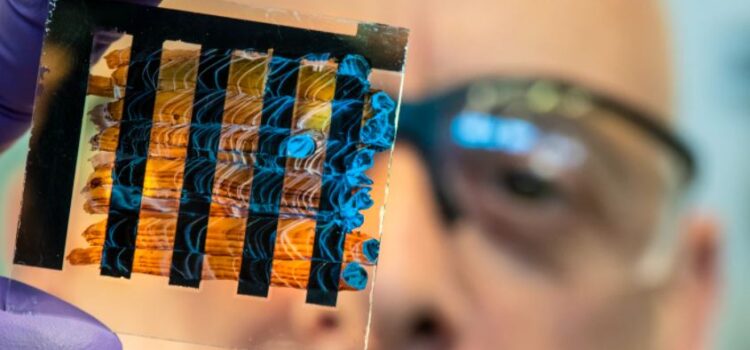

This article is an excerpt from the Shortform book guide to "The Confidence Code" by Katty Kay and Claire Shipman. Shortform has the world's best summaries and analyses of books you should be reading.
Like this article? Sign up for a free trial here .
Is confidence genetic? And if so, how much do genes contribute to one’s sense of self-confidence?
It’s scientifically accepted that the big five personality traits—agreeableness, neuroticism, conscientiousness, extroversion, and openness are responsible for around 50% of our personalities. Confidence and optimism are related to these traits, and scientists estimate that 25-50% of our confidence comes from our genes.
Here is what science has to say about the role of genetics in confidence.
Is Confidence Genetic?
Psychological research points out that confidence is genetic to some extent.
Behavioral geneticist Robert Plomin studied identical twins and fraternal twins and found that identical twins had more similar answers than fraternal twins on both self-assessments of their ability and their actual ability. He found that the correlation between confidence and genes could be as high as 50%, which might be even higher than the correlation between IQ and genes.
Neuropsychologist Steve Suomi found that rhesus monkeys (which have similar genes to humans) that aren’t exposed to any environmental changes tend to have a confidence level that corresponds to what their genes suggest.
There are still many unknowns when it comes to genetics and personality. (Much historical genetic research has focused on pathology and only in the past few years have scientists started looking more at psychology and genes.) Scientists have studied the genes of highly intelligent people, but no one had studied the genes of highly confident people. Most scientists think that confidence will be related to many, rather than one, gene because confidence is a complex personality trait that includes, cognition, emotion, and metacognition (thinking about how we think).
What Are the Confidence Genes?
While scientists don’t yet know all the genes that affect confidence, they’ve identified four notable players. There are no differences in these genes between men and women.
Gene #1: The Serotonin Transporter (SLC6A4)
The serotonin transporter gene (SLC6A4) regulates serotonin levels in the body. Serotonin is a neurotransmitter that influences mood in two ways:
- It calms the amygdala, the two primitive parts of the brain responsible for fear and strong, often negative emotions that further survival, like fight-or-flight.
- It de-stresses the prefrontal cortex (the part of the brain responsible for, among other things, rational thought). A calmer prefrontal cortex makes you feel happier, less anxious, and more confident in your decision-making.
SLC6A4 comes in three variants:
- Two long strands. This variant processes serotonin well and people who have it are resilient, which helps them be confident.
- For example, rhesus monkeys, like humans, have the SLC6A4 gene. Monkeys who have the long-stranded variant often become leaders and take risks.
- One short and one long strand. This variant processes serotonin inefficiently.
- Two short strands. This variant processes serotonin poorly, leaving people who have it at a higher risk of anxiety and depression. (However, this also makes for higher vigilance, so perhaps people with this version had better survival instincts.) This variant is rare.
- For example, the monkeys with this variant can be fearful and risk-averse. Or, they can be hyperactive and aggressive, particularly the males.
Gene #2: OXTR
The OXTR gene controls oxytocin levels. Oxytocin is the “cuddle hormone” that makes us want physical contact and encourages us to be generous and moral. It’s generated from physical contact, such as sex and exercise, and it’s a virtuous circle—if you hug someone, this increases your desire to keep hugging—but some people naturally have more or less of it.
Oxytocin affects confidence in two ways:
- It’s tied to optimism—it encourages positive thoughts about others. As noted in the previous chapter, optimism supports confidence because it’s easier to take risks if you believe things will turn out all right.
- Like serotonin, it aids the prefrontal cortex processes and calms the amygdala.
Like SLC6A4, this gene also has two variants. One makes people more resilient and outgoing; the other can lead to low self-esteem and optimism, and less capability for mastering things.
Genes #3 and #4: COMT and DRD4
COMT and DRD4 control dopamine. Dopamine in the prefrontal cortex aids concentration and IQ, and is also linked to action and risk-taking, among other things. Our bodies make more dopamine when we’re stressed.
COMT is the “warrior/worrier” gene. It’s responsible for clearing dopamine out of the frontal cortex and there are three variants:
- Warrior. This version clears dopamine quickly.
- Mix. This version clears it at medium speed.
- Worrier. This version clears dopamine slowly.
In most situations, the worrier version is biologically advantageous because it allows dopamine to remain in the brain longer, and dopamine aids concentration and IQ.
However, in stressful situations, our bodies make so much dopamine that it overwhelms our brains and shuts them down. In these scenarios, the warrior gene is advantageous because it quickly clears that excess dopamine.
These variants help explain why some people need pressure and stress to be effective, and other people who are normally reliable choke in high-pressure situations.
One of the variants of DRD4, DRD47R, is the “adventure gene”—it encourages pushing limits and extreme risk-taking because these activities boost dopamine.
Genetic Testing
If you want to know which variants you have, two services offer genetic testing:
- 23andMe tests for one million genes, including COMT and OXTR. The testing is available to the public directly and the company aims to create a genetic database that will help scientists with research.
- Genomind tests for the serotonin transporter gene and other genes related to neuropsychiatry. It’s only available through physicians and hospitals and is mainly used to help doctors prescribe medications more effectively (some medications work better or worse for people with certain genes).
Epigenetics
While up to 50% of confidence might be determined by our genes, that doesn’t mean that any of us are doomed to be under-confident. Certain genes related to character traits can turn on and off, thus changing our brain chemistry—and our confidence levels. Epigenetics is the study of how life experiences can change our genes and DNA.
- Example #1: Identical twins have the same DNA but have different personalities.
- Example #2: The authors have the same combination of confidence-related gene variants: worrier COMT, resilient OXTR, and SLC6A4. They have different personalities and find different things easier and harder.
Interestingly, these gene off-ons might be inheritable even after only a single generation. Scientists don’t know yet if women who work on their confidence can pass this to their children, but it could be possible.
- For example, some studies found that pregnant women who witnessed the Twin Towers attacks passed stress hormones to their babies.
Sensitivity Genes
Sensitivity genes are genes that make someone more sensitive—not more vulnerable—to their environment. This means that they’re more likely to absorb whatever influences they’re surrounded by, whether positive or negative.
- For example, rhesus monkeys that had confidence-facilitating genes grew up to be non-anxious adults regardless of what kind of mother they had. Monkeys with social anxiety genes grew up to be anxious adults when they had anxious mothers and grew up to be somewhat anxious when they had average mothers. But when they had great mothers, they grew up to be more confident and healthy than the monkeys with the confidence-facilitating genes. (Research suggests monkey mothers have a larger effect than fathers.)
Sensitivity is highest in early childhood and psychologist Suomi thinks it may also be high in other key periods like menopause, labor, and puberty.
The Orchid Theory
The orchid theory states that most children are resilient and hardy, like dandelions. Other children are orchids—they’re harder to raise because they’re sensitive to their environment, but if they’re nurtured properly, they’ll overcome their environmental sensitivity and grow up to outdo the dandelion children.
- Example #1: Scientists discovered that people who have the short serotonin variant are more susceptible to environmental influence, whether positive or negative.
- Example #2: During a study of difficult German toddlers, researchers coached parents on how to improve their relationship with their children. After almost two years, all of the children’s behavior had improved, and that of children with a dopamine gene possibly linked to sensitivity improved twice as much.

———End of Preview———
Like what you just read? Read the rest of the world's best book summary and analysis of Katty Kay and Claire Shipman's "The Confidence Code" at Shortform .
Here's what you'll find in our full The Confidence Code summary :
- An examination of the art and science of confidence
- Why women have more trouble accessing confidence than men
- How to build confidence in yourself and others






